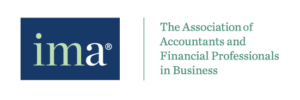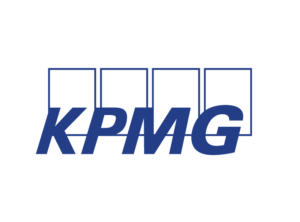
The video recordings of the symposia are available here.
Wednesday, 24th May 2023 Undergraduate Centre – Aalto University
SYMPOSIUM 1
CONTEMPORARY DEVELOPMENTS IN MANAGEMENT CONTROL SYSTEMS
Wednesday, 24th May 2023, 14:00-15:30
UNDERGRADUATE CENTRE – AALTO UNIVERSITY, AUDITORIUM A
Over the past decades there has been a growing interest to study the interrelations between control systems. Current developments in business and society – covid and remote work, quest for agility, digitalization, political unrest, to name few – begs for further research on how organizations respond to these developments by adjusting the design and use of their control systems, and what are the resulting outcomes. The aim of this symposium is to discuss and debate about the past achievements of, and future avenues for, the research on the interconnectedness of multiple control systems. The practical relevance of this research stream is discussed.
CHAIR:
Teemu Malmi (Aalto University School of Business)
PANELISTS:
David Brown (University of Technology Sydney, UTS)
Berend van der Kolk (Vrije Universiteit Amsterdam, VU)
Melissa Martin (University of Illinois Chicago, UIC)
Antti Niemelä (OP Financial Group)
SYMPOSIUM 2
Yuri Ijiri Lecture: Tracing Intellectual Origins in Accounting
Wednesday, 24th May 2023 at 16:00-17:30
UNDERGRADUATE CENTRE – AALTO UNIVERSITY, AUDITORIUM A
Presentation of the certificate to Stephen Zeff by Annalisa Prencipe at the end.

Stephen Zeff
Tracing intellectual origins in accounting should be a staple in our literature, to demonstrate that there may be writings somewhere in the long line of our published research that may help us resolve some of today’s conundrums. It therefore justifies our search of the literature to unearth these writings. It also pays to learn how some early writings may have conveyed meaning in the resolution of later inquiries. I will be discussing four streams in the literature. The first proposes to identify the origins of the centrality of information for decision-making in both the management accounting and financial accounting literatures, and as well in all of the standard setters’ conceptual frameworks. The second focuses on the origins of futurity in the financial accounting literature. The third treats the thread of the evolution of the literature on general price-level accounting. And the fourth, dealing with the recognition of goodwill in consolidated statements, shows how early academic writing influenced the Financial Accounting Standards Board (FASB) to require a novel approach.
Thursday, 25th May 2023 Undergraduate Centre – Aalto University
SYMPOSIUM 3
EDITOR’S PANEL – PUBLISHING: REFLECTIONS ON THE ROLES AND EXPECTATIONS OF REVIEWERS, AUTHORS AND EDITORS
Thursday, 25th May 2023, 9:00-10:30
UNDERGRADUATE CENTRE – AALTO UNIVERSITY, AUDITORIUM A
The process of publication is central to ensure that our communities continue to produce new and rigorous knowledge, and to strengthen academic debates. In this process, the roles and interactions of reviewers, editors and authors are crucial. This year, the editors’ panel will aim to discuss the main challenges for reviewers, editors and authors when taking part in the “publication” process, and identify possible solutions and advice to shed more clarity on roles, expectations, and best modes of interaction.
CHAIR:
Ileana Steccolini (Chair, Standing Scientific Committee, EAA)
PANELISTS:
Andrei Filip (Accounting in Europe)
James Guthrie (Accounting, Auditing and Accountability Journal)
Robert Knechel (The Accounting Review)
Stergios Leventis (Journal of International Accounting, Auditing and Taxation)
Beatriz Osma (European Accounting Review)
Keith Robson (Accounting, Organizations and Society)
SYMPOSIUM 4
ACCOUNTING REQUIREMENTS FOR INTANGIBLE ASSETS IN TODAY’S BUSINESS MODELS (EAR AND AINE SYMPOSIUM)
Thursday, 25th May 2023, 11:00-12:30
UNDERGRADUATE CENTRE – AALTO UNIVERSITY, AUDITORIUM A
Intangible assets are major determinants of growth and value creation whose growing economic relevance is universally recognized. At the same time, these assets are both uncertain and risky. Hence, accounting for intangible assets has been a matter of debate for decades. Standard-setters, practitioners and academics increasingly deal with challenges related to managing and reporting on intangible assets for external users, as well as understanding how these assets affect corporate performance for internal users. In this symposium, panelists will discuss questions facing standard setters, preparers, and academics with respect to the recognition, measurement, and disclosure of intangible assets.
CHAIR:
Araceli Mora (University of Valencia)
PANELISTS:
Anne Jeny (IESEG School of Management, Paris)
Katherine Schipper (Duke University)
Ana Simpson (IASB)
Rasmus Sommer (EFRAG)
Stefano Zambon (University of Ferrara)
SYMPOSIUM 5
REGULATION OF SUSTAINABILITY REPORTING IN THE EU: CURRENT STATE AND RESEARCH OPPORTUNITIES (EAR AND AINE SYMPOSIUM)
Thursday, 25th May 2023, 14:00-15:30
UNDERGRADUATE CENTRE – AALTO UNIVERSITY, AUDITORIUM A
Sustainability reporting is increasingly used by policy makers, market participants and stakeholders to enable and facilitate a transition towards a more sustainable economy and society. The European Union is at the forefront of regulatory actions aiming at standardizing sustainability reporting, encouraging due diligence in the supply chain and mobilizing of financial markets for sustainability. The aim of this symposium is to present and discuss the key EU regulatory developments from different research angles. Topics include the state of the art of the accounting literature on non-financial reporting mandates and their economic and broader social consequences, the fundamental debates arising from the standard setting process, and opportunities for future research in these areas.
CHAIRS:
Joerg-Markus Hitz (University of Tübingen)
Giovanna Michelon (University of Bristol)
PANELISTS:
Begoña Giner (University of Valencia)
Carlos Larrinaga (University of Burgos)
Thorsten Sellhorn (Ludwig-Maximilians-Universität München)
SYMPOSIUM 6
DIVERSITY IN ACADEMIC LIFE
Thursday, 25th May 2023, 16:00-17:30
UNDERGRADUATE CENTRE – AALTO UNIVERSITY, AUDITORIUM A
What does it mean to be a ‘diverse’ accounting faculty member? Can diverse groups thrive in a too often homogenous faculty department? If so, how? These discussions go beyond diversity in research paradigms and methods, and rather focus on faculty members as individuals and their lived experiences at their institutions.
This symposium aims to provide ample space for diverse voices in accounting academia and reflect together on how we foster equity and inclusion within our profession. These important and highly relevant debates also ensure that students can find and get exposed to diverse role models. Furthermore, these conversations should help faculty members and accounting departments to further reflect on their hiring, mentoring, workloads, career trajectories, compensation, promotion and social activities to embrace (take into consideration) current socio-cultural changes to adopt and promote diversity within organizations. Join multiple faculty members as they engage in this topic, drawing on their life experiences related to diversity in accounting academia. This symposium will include panel discussions, keynote speeches, and opportunities for the audience to engage via live virtual interactions using modern tools (e.g., menti.com or slido.com) and Q&A.
CHAIR:
Charles H. Cho (Schulich School of Business, York University)
PANELISTS:
Catalin Albu (Bucharest University of Economic Studies)
Loreal Jiles (Institute of Management Accountants)
Stefani Mason (DePaul University)
Partha Mohapatra (California State University, Sacramento)

Friday, 26th May 2023 Undergraduate Centre – Aalto University
SYMPOSIUM 7
SUSTAINABILITY REPORTING: MEASUREMENT OF IMPACTS
Friday, 26th May 2023, 9:30-11.00
UNDERGRADUATE CENTRE – AALTO UNIVERSITY, AUDITORIUM A
Sustainability reporting, or non-financial reporting, is not a new phenomenon, but it has grown tremendously in the last few years. Compared with the 2014 EC Directive, the new Sustainability Reporting Directive issued in 2022 has extended the obligations in terms of entities affected, granularity of information, and has made it clear that the so called “double materiality” has to be followed. In other words, entities have to inform about how sustainability aspects affect them (the “outside-in” perspective), also referred to as financial materiality, and how the entity impacts society and the planet (the “inside-out” perspective), known as impact materiality. That said, it is not obvious that “inside-out” aspects do not have later “outside-in” effects, and consequently cannot be entirely ignored when considering the financial materiality notion. The central point of this symposium is to discuss how to measure impacts and inform about them in the corporate reports: Should they be captured in the sustainability reports only? Or, could they be captured by the financial statements? Is there a clear line between them? Are impacts sources of risks only? Or, are there also related opportunities to be considered? How to decide if these impacts are material enough to be reported?
CHAIR:
Begoña Giner (University of Valencia, EFRAG Sustainability Reporting Board, SRC Chair)
PANELISTS:
Stuart Cooper (Bristol University)
Karin Juslin (PWC Finland, Director, ESG Reporting & Assurance)
Chiara del Prete (EFRAG Sustainability Reporting TEG Chair)
Ethan Rouen (Harvard University and Impact-Weighted Accounts)
SYMPOSIUM 8
ASSURANCE OF CLIMATE CHANGE REPORTING: DEVELOPING RESEARCH AGENDA
Friday, 26th May 2023, 11.30-13.00
UNDERGRADUATE CENTRE – AALTO UNIVERSITY, AUDITORIUM A
As the world continues to grapple with the impacts of climate change, assurance over the accuracy and credibility of climate change reporting is critical. Providing auditing or some other form of assurance over greenhouse gas emissions is essential for tracking progress towards emission reduction goals and holding organizations accountable for their environmental impact.
This panel session will bring together experts from academia and industry to discuss the current state of assurance of climate change reporting and to identify key research areas that could help improve the effectiveness and credibility of such assurance. The discussion will cover a range of topics, including:
Attendees will gain a deeper understanding of the challenges and opportunities related to assurance of climate change reporting, and will leave with practical insights on how to develop research agendas in this area. This panel session is essential for researchers, students, and professionals interested in climate change reporting, assurance, sustainability reporting, and environmental accounting.
CHAIR:
Lasse Niemi (Aalto University School of Business)
PANELISTS:
Ingalill Aspholm (Finnish Association of Authorised Public Accountants)
David Hay (University of Auckland)
Robert Knechel (University of Florida, Warrington College of Business)
Kirsi Saaristo (KPMG Finland, Senior Manager, ESG Reporting and Assurance Leader )
SPONSOR:

SYMPOSIUM 9
THE BALANCE BETWEEN TECHNICAL AND CRITICAL CONTENT IN ACCOUNTING EDUCATION
Friday, 26th May 2023, 14.30-16.00
UNDERGRADUATE CENTRE – AALTO UNIVERSITY, AUDITORIUM B
Should we teach more than technical content in accounting degrees? Should accounting degree content be dominated by technical content?
The nature and content of accounting education is highly affected by jurisdictional and institutional contexts, and within all these contexts technical accounting content matters. Accounting programmes are often pressured to include more and more advanced technical accounting content. At the same time, there are often demands to minimise the “boring” parts of the accounting craft, especially those most likely to be automated such as double entry bookkeeping. In contrast many of the main employers of our accounting graduates continue to emphasise that they want graduates with the non-technical skills universities traditionally provide to all graduates regardless of field of study, such as effective communication, critical thinking, and the intellectual curiosity to continue learning throughout their careers.
This symposium is designed to open a discussion on how accounting programmes might, or should, look to balancing these demands to provide programmes in the best interests of our students, in the long as well as the short term.
CHAIR:
Gia Chevis (Member of the EAA Education Committee, Clinical Professor, PwC Professor of Teaching Excellence, Baylor University, USA)
PANELISTS:
Nicola Beatson (Senior Lecturer, University of Otago, New Zealand; President of AFAANZ)
Mirel Leino-Haltia (Professor of Practice, Aalto University School of Business)
Jussi Siitonen (CFO and Deputy to the CEO at Fiskars Group, Finland)
Greg Stoner (Member of the EAA Education Committee, Professor, University of Glasgow, UK; Editor: Accounting Education, & Chair of the BAFA Accounting Education Special Interest Group)
SYMPOSIUM 10
CONNECTIVITY BETWEEN FINANCIAL REPORTING AND SUSTAINABILITY REPORTING
INFORMATION
Friday, 26th May 2023 at 14:30-16:00
UNDERGRADUATE CENTRE – AALTO UNIVERSITY, AUDITORIUM A
The rapidly evolving corporate reporting environment including the ongoing enhancement of both sustainability and financial reporting requirements and practices underscores the importance of ensuring connectivity between these two reporting domains. The objectives and scopes of financial reporting and sustainability reporting are different. However, the two types of reporting also complement each other, interact and are both making use of assessments of future events and circumstances.
Although the term connectivity is increasingly being applied by reporting stakeholders, the thinking around this notion from both a conceptual, standard setting and practical application standpoint is at the early stages with no commonly accepted definition and with multiple questions arising. For instance, there is a need to consider how financial and sustainability reporting can jointly provide a consistent and holistic reflection of the reporting entity’s circumstances and effects and meet the information needs of different types of stakeholders. Other questions are: What aspects of connectivity should be prioritised? What are the users’ needs and what are the resulting mechanisms for ensuring connectivity of these needs? What role can technology fulfil? What is the impact of different time horizons and of having different users? How can the articulation of financial statements, management commentary and sustainability statements be made effective? How to foster clarity of the respective roles and scopes of financial and sustainability reporting? How to conceptualise financial materiality in sustainability statements as opposed to financial materiality in financial statements?
At this symposium, panelists will discuss the issues on connectivity between financial reporting and sustainability reporting. Participants will also receive a presentation of EFRAG’s activities on the development of European Sustainability Reporting Standards (ESRS) and its IFRS influencing and proactive research workplan with a focus on projects relevant where insights from academic research are sought.
The EFRAG symposium involves the following contributors:
Birgitte Mogensen (former PTF ESRS member and member of various Boards)
Chiara Del Prete (EFRAG Sustainability Reporting TEG Chairwoman)
Linda Mezon-Hutter (IASB Vice-Chair, former Chair Accounting Standards Board (AcSB) in Canada)
Elina Peill (EFRAG Administrative Board member (representing Accountancy Europe), former EFRAG FRB deputy member and Corporate Reporting Specialist at Deloitte)
Thorsten Sellhorn (EFRAG Academic Panel member, EFRAG EWG Conceptual Guidelines member, Professor of Accounting at Ludwig-Maximilian University Munich’s School of Management, former EAA President, IFRS Advisory Council member
Saskia Slomp (EFRAG CEO)
Jeremy Stuber (EFRAG Intangibles Advisory Panel member, IFRS CMAC member, CRUF (UK) Chair and Global Equity Analyst at Newton Investment Management).
